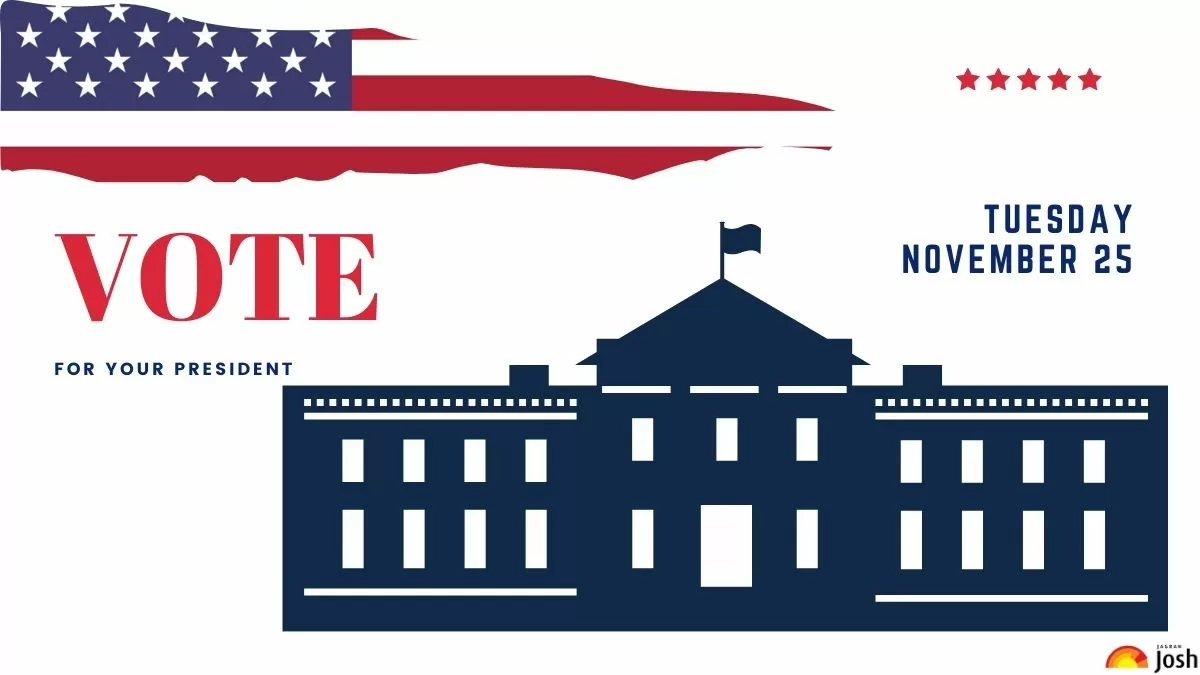2024 United States Presidential Election Date and Schedule: The United States Presidential Election 2024 will be the 60th quadrennial presidential election, scheduled for Tuesday, November 5, 2024. This presidential election will occur at the same time as elections to the U.S. Senate and the U.S. House. Several states will also hold gubernatorial and state legislative elections. The last election was held in the year 2020 in which Donald Trump was succeeded by Joe Biden.
Member of the Democratic Party and incumbent President Joe Biden is up for reelection. The other declared candidate is the Republican Party member and former President Donald Trump. A number of rivals for both of the major parties' nominations in the primaries have also launched their candidacies. The winner of this election will take office on January 20, 2025.
Also Read: List of the United States Presidents 2023
This article will help you with the complete schedule and nominees for the US Presidential Election 2024. Other than this, you can also
US President Election 2024 Date & Schedule
The US Presidential Election will take place on November 5 2023. The leading campaigns for the upcoming election are crime, education, immigration, gun control, healthcare, abortion access, LGBT rights (especially transgender rights), the state of the economy, climate change and the indictments against Donald Trump are expected to be leading campaign issues.
| Election Name | 2024 US Presidential Elections |
| Commission | Federal Election Commission |
| Country | United States of America |
| Total States | 50 states |
| Current President | |
| Previous Elections | 2020 |
| Upcoming Elections | 2024 |
| US President Election 2024 Date | November 5, 2024 |
| US President Election 2024 Result Date | January 25, 2025 |
2024 US Presidential Elections Candidates List
A total of Seventeen people, 13 Republicans, three Democrats and one third-party candidate are running for president election in 2024.
| S.No | 2024 US Presidential Election Candidates | Profession/Position | Political Party |
| 1. | Joe Biden | Current President of USA | Democratic Party |
| 2. | Previous President of USA | Democratic Party | |
| 3. | Chairman of Strive Asset Management | Republican Party | |
| 4. | Robert F. Kennedy Jr | Environment Lawyer | Democratic Party |
| 5. | Marianne Williamson | Author | NA |
| 6. | Ryan Binkley | Founder of Generational Equity Group | NA |
| 7. | Doug Burgum | Governor of North Dakota | Republican Party |
| 8. | Chris Christie | Governor Of New Jersey | Republican Party |
| 9. | Ron DeSantis | Governor of Florida | Republican Party |
| 10. | Larry Elder | Host of the Show | NA |
| 11. | Nikki Haley | Ambassador of UN | Republican Party |
| 12. | Will Hurd | US Representative for TX-13 | NA |
| 13. | Asa Hutchinson | Governor of Arkansas | Republican Party |
| 14. | Perry Johnson | Businessman | NA |
| 15. | Mike Pence | Previous Vice President of the US | Republican Party |
| 16. | Tim Scott | US Senator from South Carolina | NA |
| 17. | Francis Suarez | Mayor of Miami | Republican Party |
Facts About the US Presidential Election
- Out of 172 nations, the United States is ranked 139th in voter participation.
- A voting machine was used for the first time in an election in 1892.
- The first president to be born in a medical facility was Jimmy Carter.
- The only president to not represent a political party was George Washington.
- "The Star-Spangled Banner" was approved as the national anthem by Herbert Hoover.
- 160 gallons of alcohol were purchased with George Washington's entire campaign budget in order to feed voters.
- Congress didn't abolish the requirement for property ownership to cast a ballot until 1856.
- Congress agreed in 1845 that election day would be the first Tuesday following the first Monday in November, after the harvest and before the weather made travel too challenging in the winter.
- The elephant and the donkey that represent the Republican and Democratic parties, respectively, were designed by cartoonist Thomas Nash.
Trump and Biden have both declared their candidacies for president in 2024, raising the possibility of the first presidential rerun since 1956 and a potential rematch of the 2020 election. If Trump is elected, he will join Grover Cleveland, who did it in 1892, as the second president to win a second non-consecutive term.
